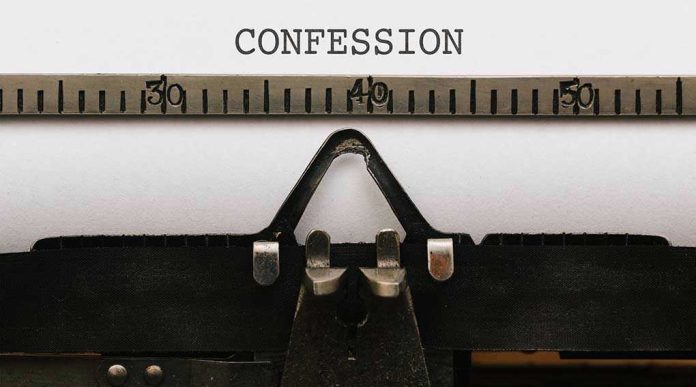
A local television reporter stumbled upon the confession of his career when a simple follow-up interview about a house fire turned into a chilling admission of double murder.
Story Snapshot
- Reporter conducting routine follow-up on house fire gets unexpected murder confession on camera
- Man admits to killing both parents during what started as standard local news interview
- WRGB-TV journalist’s persistent questioning leads to breakthrough in cold case
- Confession transforms routine local story into major criminal investigation
When Routine Reporting Turns Deadly Serious
Local journalism rarely produces headline-grabbing scoops, but WRGB-TV reporter experienced every journalist’s dream and nightmare simultaneously last week. What began as a standard follow-up interview about a residential fire evolved into a shocking double murder confession. The reporter’s decision to press harder with questions rather than accept surface-level answers demonstrates the importance of persistent investigative work, even at the local level.
The Power of Follow-Up Questions
The confession didn’t emerge from a gotcha moment or aggressive confrontation. Instead, methodical questioning and careful observation led the reporter to sense something wasn’t right with the initial story. This approach reflects solid journalism fundamentals that have become increasingly rare in today’s fast-paced media environment. The reporter’s instinct to dig deeper rather than simply report the obvious facts separated this interview from countless others.
Professional journalists understand that the most significant stories often hide beneath routine events. House fires, family disputes, and neighborhood incidents frequently mask deeper truths that only emerge through careful questioning. This case perfectly illustrates why local reporters must maintain skepticism and curiosity, even when covering seemingly straightforward community events.
The Confession That Changed Everything
The suspect’s decision to confess during a television interview raises questions about his mental state and motivations. Criminal psychology experts often point to guilt, attention-seeking behavior, or psychological pressure as factors that drive unexpected confessions. The camera’s presence may have created an environment where the truth felt inevitable, or the suspect may have been seeking relief from carrying this burden alone.
The timing of this confession also highlights how unresolved crimes weigh on perpetrators over time. While the exact timeline remains unclear, the suspect’s willingness to admit guilt during a routine interview suggests the psychological toll of living with such a secret. This phenomenon appears frequently in criminal cases where guilt eventually overpowers self-preservation instincts.
Man makes shocking confession to killing parents during live TV interview | Click on the image to read the full story https://t.co/bT4LDyux1X
— WBAL-TV 11 Baltimore (@wbaltv11) September 29, 2025
Local Journalism’s Unexpected Impact
This incident underscores local journalism’s continued relevance in an era dominated by national news cycles and social media. Small-market reporters often develop deeper community knowledge and relationships that enable them to recognize when stories don’t add up. The WRGB-TV journalist’s familiarity with local personalities and situations likely contributed to sensing something was amiss with the initial account.
The confession also validates the importance of maintaining local news operations despite financial pressures facing smaller markets. National outlets rarely invest time in follow-up reporting on residential fires or family disputes. Local reporters, however, understand their communities intimately and can spot inconsistencies that outsiders would miss completely.



